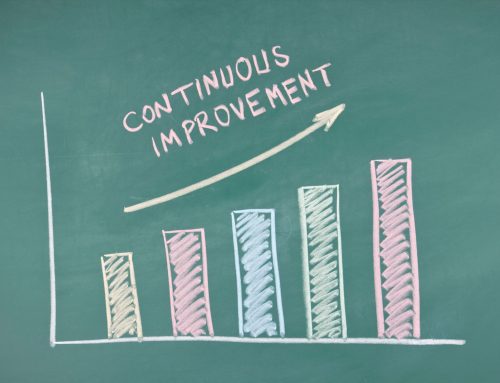Staying In Business Forever: How To Create A 100-Year Company – www.forbes.com
The average lifespan of companies on the S&P 500 Index has decreased by more than 50 years in the last century, according to Yale Lecturer Richard Foster. While successful companies lasted an average of 67 years in the 1920s, they typically exist for only 15 years today.
This is a trend that is both alarming and sad.
Conversely, however, this plight can lead us to celebrate even more fully the organizations that know what it takes and that have the passion and desire to execute on a company vision that is destined to carry on for generations and ages. Examples still exist. More are emerging. Given the sobering odds, we should acknowledge these great ventures still further, and even redouble our efforts to learn what it is these companies understand that the rest of us desperately need to learn and know. In that spirit, I dedicate today’s column to the great wisdom of companies that are built to endure. I hold them in honor.
Furthermore, I make the assertion that far more entrepreneurs should strive to build organizations that endure instead of building ventures to flip. Why is it so vital? And what are the keys to bringing these legacy organizations to life?
Here are the top 5 reasons to build a company that can endure for the ages:
1. The investment in employees – and the investments by the employees in the company they serve – is fully returned, in both directions. What does this mean? The mutual respect and investment produces character and principle-based companies (I discussed this last week as well) that are replete in the traits that make for lasting organizations and lasting relationships. These traits include Respect, Belief, Loyalty, Commitment, Trust, Courage and Gratitude (my 7 Non-Negotiables). Employees are fully engaged. Leaders are fully leading. Miraculous successes occur.
2. Relationships and partnerships with customers and communities are rock solid, and they produce tremendous returns. Trust and dependability abound.
3. Good leaders have the opportunity to grow in seniority, to gain additional skills, and to become truly great.
4. One-hundred-year companies are financially stable. They experience fewer ups and downs and endure less stress and worry about the possibility of layoffs and loss.
5. These companies’ value propositions and unique strengths are clear and focused. Marketing and sales is much more efficient when a company doesn’t need to be concerned with “reinventing itself,” rebuilding a reputation or regaining the market’s awareness every 2-3 years.
My own company, Fishbowl, has spoken openly and often about our mission to create a company that will last not only for our own lifetimes, but will be around for our children and our children’s children as well. We have worked to live the principles we believe in to obtain all of the benefits that come from building a company that is designed to last for 100 years.
In support of this principle I spoke this week with another 100-year company – MultiLing, a global provider of highly technical translations for multinational enterprises – celebrating its 25-year anniversary this week. MultiLing is a principle-based company that makes the lion’s share of its business supporting other companies that are also forged to last for the duration — IBM, Intuit, Dow Corning, Dell and Procter & Gamble, to name a few. Enterprise companies pay upwards of $5 million per year for MultiLing’s scientific translation services. The company has experienced solid and steady expansion and growth, even during the recession. With its lasting focus, the company has forged global partnerships with 100-year companies in North America, Europe and Asia. In my opinion, the company’s tagline says it all: “Beyond Words.”
1. It’s about the ideas. Says Ball, “I am more interested in 100-year ideasthan in 100-year companies. As an entrepreneur, I strive to create ideas that have life in and of themselves, but that can be merged with other good ideas (e.g., the ideas of our tremendous clients such as Procter & Gamble, which is a 100-year-old company in its own right.) As these ideas merge, both parties become stronger companies.”With the help of contributions from MultiLing COO Lyle Ball, I would now like to present the 10 key steps that every company can use to put itself on the path of creating a level of success and a legacy that could last for 100 years:
2. It’s about the principles, too. “In many respects, principles are just as important as the ideas,” Ball says. “Not every idea is a 100-year idea, but if entrepreneurs are acting with the right principles, they are able to surpass their near-term self-interests to recognize that for an idea to be reallysuccessful it needs to evolve to live even longer than the person that generated the idea.” Wow. A proposition and premise that is mind bending.
3. Build a strong company identity through careful management of the company’s culture. A company’s culture is vital. The company has a “personality” and even a persona that is comprised of the people within it, but is stronger and more enduring than the sum of its parts. A strong company culture can make a vital difference to the organization’s success, and must be cherished and protected for the longest-term success to endure.
4. Maintain a laser-sharp customer focus. 100-year company Steelcase, for example, has endured by developing an unwavering focus on the ways people work and the way they interact. The result is the canonical office furniture products we have come to know and expect from Steelcase. The Girl Scouts of the USA is another example, as the organization has been relentlessly focused on understanding the way every generation of girls lives, to be sure they stay relevant.





Leave A Comment
You must be logged in to post a comment.